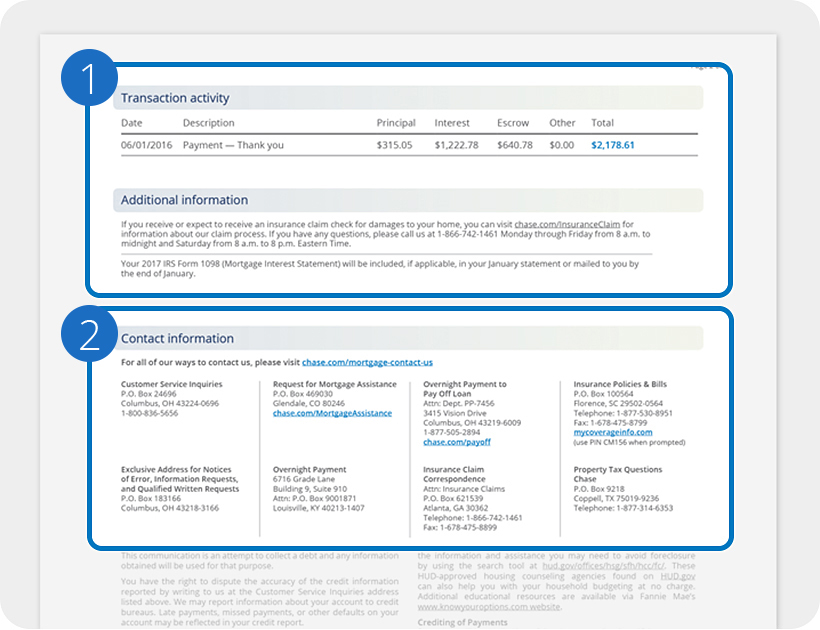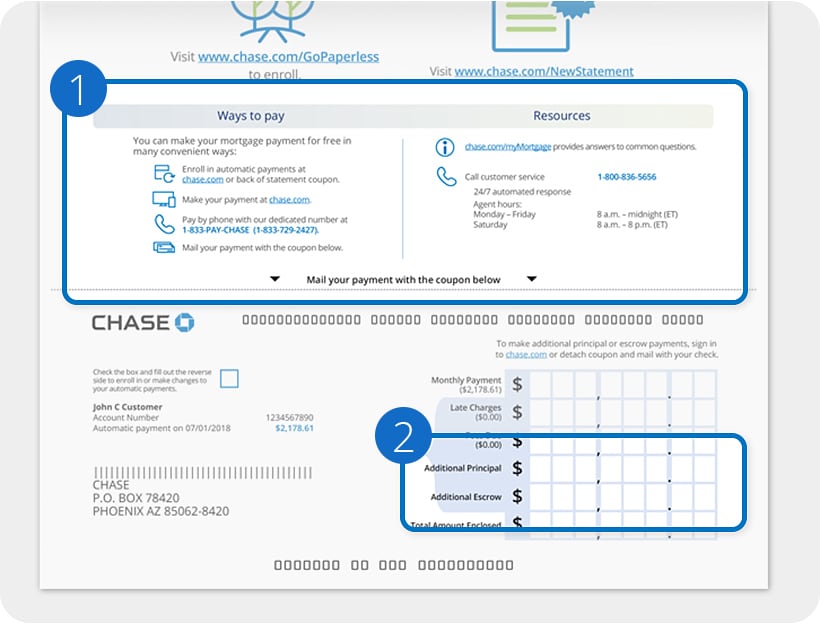Chase Mortgage Loan: Your Ultimate Guide To Securing Your Dream Home
So, you're thinking about getting a Chase mortgage loan? Good move! Whether you're a first-time homebuyer or looking to refinance, understanding how Chase mortgage loans work can save you time, money, and a lot of headaches. But let's be real—buying a home isn't as easy as picking out a couch. There’s paperwork, interest rates, and all kinds of financial jargon that can make your head spin. That's why we're here to break it down for you in plain English.
Buying a house is one of the biggest decisions you'll ever make. And when it comes to financing, Chase Mortgage Loans are often at the top of the list for many homebuyers. But before you dive in, it's important to know what you're getting into. From application processes to interest rates, we've got you covered with all the info you need to make an informed decision.
Let’s face it—mortgage loans can feel overwhelming. But with Chase, you have access to some of the best resources and tools to help you navigate the process. Whether you're looking for a fixed-rate mortgage, adjustable-rate mortgage, or even a jumbo loan, Chase has options tailored to fit your needs. So, buckle up and let's get started!
Read also:Charlie Sheen Dead Lets Set The Record Straight Once And For All
Understanding Chase Mortgage Loan: What It Really Means
What Exactly is a Chase Mortgage Loan?
Alright, let's start with the basics. A Chase mortgage loan is essentially a loan you take out from Chase Bank to buy a home. Simple, right? But there's more to it than just borrowing money. Chase offers a variety of mortgage products designed to meet different financial situations and goals. Whether you're buying your first home, upgrading to a bigger space, or refinancing your current mortgage, Chase has options that could work for you.
Here’s the deal: When you apply for a Chase mortgage loan, you're entering into a legal agreement where Chase lends you the money to buy the house, and you agree to pay it back over time, plus interest. The house itself serves as collateral, meaning if you default on your payments, Chase could take possession of the property. Scary stuff, but hey, that's why it's crucial to understand the terms before signing on the dotted line.
Types of Chase Mortgage Loans
Not all Chase mortgage loans are created equal. Here's a quick rundown of the most common types:
- Fixed-Rate Mortgages: These loans come with a fixed interest rate for the entire term of the loan, usually 15 or 30 years. This means your monthly payments won't change, making budgeting easier.
- Adjustable-Rate Mortgages (ARMs): With an ARM, your interest rate can change over time based on market conditions. These loans often start with a lower interest rate than fixed-rate mortgages but can increase after a certain period.
- Jumbo Loans: If you're looking to buy a high-end property, a jumbo loan might be your best bet. These loans exceed the standard loan limits set by government-backed entities like Fannie Mae and Freddie Mac.
- FHA Loans: Backed by the Federal Housing Administration, FHA loans are great for first-time homebuyers or those with lower credit scores. They typically require a smaller down payment compared to conventional loans.
Choosing the right type of mortgage depends on your financial situation, long-term goals, and comfort with risk. It's always a good idea to consult with a financial advisor or mortgage expert before making a decision.
Eligibility Criteria for Chase Mortgage Loan
Do You Qualify for a Chase Mortgage Loan?
Now that you know what Chase mortgage loans are, let's talk about whether you qualify. Chase has specific eligibility criteria that you'll need to meet to get approved for a loan. Here are some of the key factors they consider:
- Credit Score: Chase typically looks for borrowers with good to excellent credit scores. While the exact score required can vary depending on the type of loan, a score of 620 or higher is generally recommended for conventional loans.
- Debt-to-Income Ratio (DTI): Your DTI ratio compares your monthly debt payments to your gross monthly income. Chase prefers a DTI ratio of 43% or lower, but exceptions can be made in certain cases.
- Down Payment: The amount of down payment you need depends on the type of loan. Conventional loans usually require a down payment of at least 3-5%, while FHA loans allow for as little as 3.5%.
- Employment History: Chase likes to see a stable employment history, typically two years or more in the same field. Self-employed individuals may need to provide additional documentation to prove income stability.
Meeting these criteria increases your chances of getting approved, but it's not a guarantee. Chase also considers other factors, such as your overall financial health and the property you're purchasing.
Read also:Who Is Dana Bash Dating Unveiling The Love Life Of A Renowned Cnn Anchor
How to Apply for a Chase Mortgage Loan
Step-by-Step Guide to Applying
Applying for a Chase mortgage loan doesn't have to be a daunting process. Here's a step-by-step guide to help you navigate the application:
- Pre-Approval: Start by getting pre-approved. This gives you an idea of how much you can borrow and shows sellers you're a serious buyer.
- Gather Documents: You'll need to provide various documents, including proof of income, tax returns, bank statements, and identification.
- Choose a Loan Type: Decide which type of mortgage best fits your needs. Consider factors like interest rates, terms, and down payment requirements.
- Submit Your Application: Once you've gathered all the necessary information, you can submit your application online or through a Chase mortgage specialist.
- Underwriting Process: After submitting your application, Chase will review your financial information to determine if you qualify for the loan.
- Closing the Loan: If approved, you'll move on to the closing process, where you'll sign the final paperwork and officially become a homeowner.
While this process might seem straightforward, it's essential to stay organized and communicate openly with your Chase mortgage specialist to ensure everything goes smoothly.
Chase Mortgage Loan Rates: What You Need to Know
Understanding Interest Rates
Interest rates play a big role in determining how much you'll pay for your mortgage over time. Chase offers competitive rates, but they can vary based on several factors:
- Market Conditions: Economic factors like inflation and the Federal Reserve's policies can influence mortgage rates.
- Credit Score: Borrowers with higher credit scores often qualify for lower interest rates.
- Loan Type: Different types of loans come with different rates. Fixed-rate mortgages usually have higher rates than ARMs, but they offer more stability.
- Down Payment: A larger down payment can reduce your loan amount and potentially lower your interest rate.
It's important to shop around and compare rates from multiple lenders to ensure you're getting the best deal. Chase often offers promotions or discounts that could save you money, so keep an eye out for those as well.
Benefits of Choosing Chase Mortgage Loan
Why Chase?
With so many lenders out there, why should you choose Chase for your mortgage needs? Here are a few reasons:
- Wide Range of Options: Chase offers a variety of mortgage products to suit different financial situations and goals.
- Competitive Rates: Chase strives to offer competitive interest rates, helping you save money over the life of your loan.
- Excellent Customer Service: Chase is known for its customer service, providing support throughout the entire mortgage process.
- Convenient Online Tools: From pre-approval to submitting your application, Chase makes it easy to manage your mortgage online.
While Chase isn't perfect, their reputation for reliability and customer satisfaction makes them a solid choice for many homebuyers.
Common Challenges and How to Overcome Them
Potential Hurdles in the Mortgage Process
Even with the best preparation, challenges can arise during the mortgage process. Here are some common hurdles and how to overcome them:
- Poor Credit Score: If your credit score isn't where it needs to be, consider taking steps to improve it before applying for a loan. This could include paying down debt, disputing errors on your credit report, and making timely payments.
- Insufficient Down Payment: If you don't have enough for a down payment, explore options like FHA loans or down payment assistance programs.
- High DTI Ratio: To lower your DTI ratio, try paying off debts, increasing your income, or both. Even small improvements can make a big difference.
Don't let these challenges discourage you. With the right strategies and support, you can overcome them and secure the mortgage you need.
Refinancing Your Chase Mortgage Loan
Is Refinancing Right for You?
If you already have a mortgage, refinancing could be a smart move. Refinancing involves replacing your existing mortgage with a new one, often with better terms. Here are some reasons why you might consider refinancing:
- Lower Interest Rates: If current rates are lower than when you took out your original loan, refinancing could save you money.
- Shorter Loan Term: Refinancing to a shorter-term loan can help you pay off your mortgage faster and reduce the total amount of interest you pay.
- Cash-Out Refinance: If you have equity in your home, a cash-out refinance allows you to access that equity as cash, which you can use for home improvements, debt consolidation, or other expenses.
Before refinancing, make sure to weigh the costs and benefits. Closing costs and fees can add up, so it's important to ensure the savings outweigh the expenses.
Customer Reviews and Testimonials
What Are People Saying About Chase Mortgage Loans?
Customer reviews can provide valuable insights into the mortgage process and what to expect when working with Chase. While experiences can vary, many customers praise Chase for their:
- Responsive Customer Service: Borrowers appreciate the prompt and helpful support from Chase representatives.
- Streamlined Application Process: Many find the online tools and resources make the application process more manageable.
- Competitive Rates: Customers often highlight the attractive interest rates offered by Chase.
Of course, not every review is glowing. Some borrowers have expressed concerns about delays in the underwriting process or difficulty reaching a live representative. As with any financial institution, it's important to do your research and set realistic expectations.
Conclusion: Your Next Steps
Buying a home is a significant milestone, and securing a Chase mortgage loan can be a crucial part of that journey. By understanding the different types of loans, eligibility criteria, and application process, you're better equipped to make an informed decision. Remember, it's okay to ask questions and seek advice from professionals to ensure you're making the best choice for your financial future.
We encourage you to take action today. Whether it's starting the pre-approval process, gathering necessary documents, or reaching out to a Chase mortgage specialist, every step brings you closer to owning your dream home. And don't forget to share this article with friends or family who might find it helpful. Together, we can make homeownership a reality for more people!
Table of Contents
- Understanding Chase Mortgage Loan: What It Really Means
- Eligibility Criteria for Chase Mortgage Loan
- How to Apply for a Chase Mortgage Loan
- Chase Mortgage Loan Rates: What You Need to Know
- Benefits of Choosing Chase Mortgage Loan
- Common Challenges and How to Overcome Them
- Refinancing Your Chase Mortgage Loan
- Customer Reviews and Testimonials
- Conclusion: Your Next Steps
Article Recommendations
![Buying a Home? Mortgage Rate Guide for Singapore [2023]](https://blog.roshi.sg/wp-content/uploads/2022/08/Singapore-Home-Loan-Rates-2022.jpeg)

